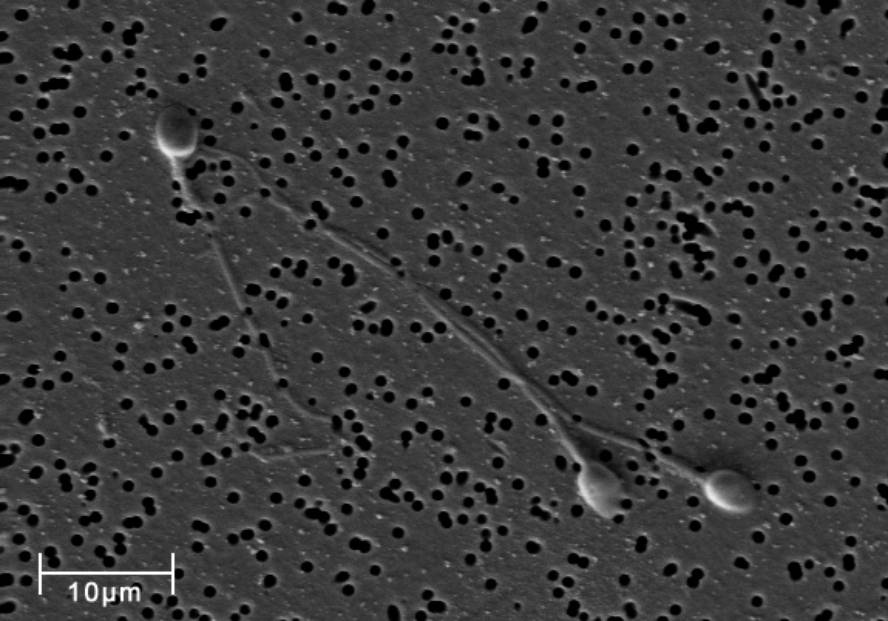Opioids regulate sperm formation
A UPV study has clarified that opioid receptors are involved in spermatogenesis. Nerea Subiran and her research team have described these receptors for the first time in the cells involved in sperm generation. The work has been published in the journal Plos One.
The involvement of opioid receptors in the cell communication system has highlighted the importance of the sperm formation process. Specifically, opioid receptors regulate the formation of the machinery responsible for properly distributing genetic information during spermatogenesis.
According to the World Health Organization, in the last ten years fertility problems have increased exponentially in developed countries. Already 3% of the children born come from assisted reproduction techniques. Fertility problems have become a social and medical problem, and many cases result from male infertility. Errors in spermatogenesis are known to cause scarce and nonfunctional sperm, but scientists continue to investigate the molecular mechanisms involved in this process, which are very important for reproductive health.
“Although ours is a basic science research with animals, thanks to these studies we are receiving information on the molecular mechanisms that control the fertility of men. They have helped to better understand the causes of many cases of infertility and to open up new opportunities to develop diets and therapeutic strategies against them," said researcher Subiran.








